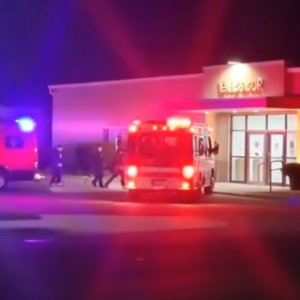Lawmakers are preparing for a new crime bill from the White House as President Donald Trump pushes ahead with his plan to address rising crime in Washington, D.C. On Wednesday, Trump announced that his administration would soon send a legislative package to Congress focused on making the nation’s capital a “beacon” for other Democrat-led cities struggling with crime. While he provided few details about the bill’s contents, Trump made clear that it would focus on restoring law and order in Washington and improving the city’s infrastructure. “We think the Democrats will not do anything to stop crime, but we think the Republicans will do it almost unanimously,” Trump said, according to Fox News. He added that the bill would include a “relatively small amount of money” to repair streets and improve the appearance of the district.
Following Trump’s remarks, Sen. Lindsey Graham (R-S.C.) confirmed that he had spoken with the president, Attorney General Pam Bondi, and other White House officials about ways Congress could help make the city safer. Bondi said in a statement that the Department of Justice would continue to collaborate with the Metropolitan Police Department (MPD), federal law enforcement agencies, and Congress “to address the scourge of violent crime in Washington, D.C., and ensure the safety of all Americans visiting or living in our Nation’s capital.” This signaled that the administration intends to coordinate a broad federal-local partnership to reduce crime rates and enhance public safety.
Graham added that the White House is preparing a legislative package to be sent to him and Sen. Katie Britt (R-Ala.), chair of the Homeland Security appropriations subcommittee. He said the effort would involve establishing a “D.C. Security Fund” to give Trump the necessary resources to “improve the safety and quality of life in our nation’s capital.” In a post on X, Graham wrote, “Every American should be behind this effort to make Washington D.C. clean and safe so that it can truly become the shining city on the hill.” His comments underscored the administration’s broader effort to link crime reduction in D.C. with national pride and urban renewal.
However, it remains unclear how and when the proposal will be introduced. Lawmakers are uncertain whether the White House plans to attach the measure to an upcoming spending bill or submit it as a separate piece of legislation. Congress is not scheduled to return to session until after Labor Day, leaving little time to consider new measures before the September 30 deadline to fund the federal government. The packed legislative calendar could complicate the timing of Trump’s crime bill, particularly as lawmakers face several competing priorities when they reconvene.
In addition to the forthcoming proposal, Congress will also need to address Trump’s temporary control over the D.C. police department, which is currently limited to 30 days. To extend his authority, Congress would need to pass a joint resolution — a process requiring 60 votes in the Senate. While Republicans have largely expressed support for extending Trump’s oversight of the city’s law enforcement, Democrats have indicated that they are unlikely to approve any move that would grant the president greater control over Washington’s local affairs. This partisan divide sets the stage for another major political clash once the legislative session resumes.
Overall, Trump’s crime initiative represents a central part of his broader effort to assert federal authority over urban governance, especially in cities led by Democrats. His administration has framed the D.C. crime bill as a model for how Republican leadership can restore safety and order in struggling metropolitan areas. Supporters view it as a necessary step to reclaim public spaces and reduce violent crime, while critics warn it could undermine local autonomy and politicize law enforcement. As details of the proposal emerge, the debate over Trump’s approach to law and order in the capital is likely to intensify in the weeks leading up to Congress’s return.





